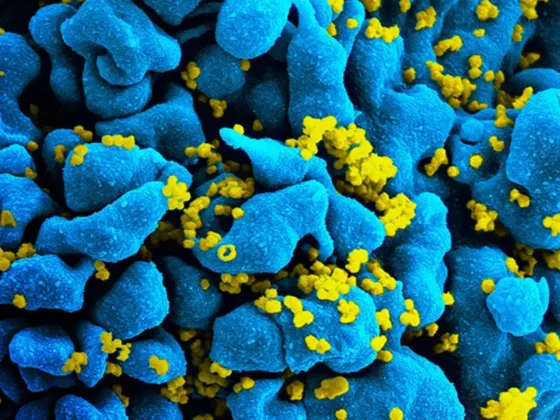Exciting research has revealed the potential of a groundbreaking vaccine that targets inflamed brain cells associated with Alzheimer‘s disease. The vaccine has demonstrated the ability to reduce or alter the progression of this devastating condition, according to a recent study.
Presented at the American Heart Association, the preliminary research focused on a novel vaccine designed to target a specific protein closely linked to the most common form of dementia. In experiments conducted on mice with Alzheimer’s, the vaccine successfully eliminated toxic cells, offering hope for its potential efficacy in humans.
Developed by researchers at Juntendo University Graduate School of Medicine in Japan, the vaccine aims to eliminate senescent cells expressing senescence-associated glycoprotein (SAGP). This type of senolytic vaccine has previously shown positive effects in addressing various age-related diseases, including atherosclerosis and Type 2 diabetes in mice.
In a separate study, it was discovered that Alzheimer’s patients have elevated levels of SAGPs in their glial cells. Building on this finding, the researchers decided to test the vaccine on mice by targeting the SAGP-overexpressed cells in an attempt to treat Alzheimer’s disease effectively.
Lead study author Chieh-Lun Hsiao, PhD, from Juntendo University Graduate School of Medicine, emphasized that Alzheimer’s disease currently accounts for a significant percentage of dementia cases worldwide. The mouse study’s positive outcomes point to a potential strategy for preventing or modifying the disease in humans. However, the ultimate challenge remains to replicate these results in human trials.
Remarkably, after receiving the vaccine, the mice showed fewer amyloid plaques and reduced brain tissue inflammation, indicating an improvement in their behavior and awareness. A maze-type behavioral test conducted on the mice at six months of age demonstrated that those vaccinated with SAGP responded significantly better to their environment compared to those who received a placebo vaccine.
The SAGP-vaccinated mice exhibited behavior akin to that of normal, healthy mice and displayed heightened awareness of their surroundings. This aspect differentiates the current study from previous research using different vaccines to treat Alzheimer’s in mouse models. While other vaccines successfully reduced amyloid plaque deposits and inflammatory factors, the SAGP vaccine uniquely impacted the mice’s behavior in a positive manner.
Rare Family Swap Liver Transplant in India Saves Lives of Uzbekistan Nationals | ALSO READ
The researchers highlighted previous findings suggesting that the SAGP protein is significantly elevated in microglia, emphasizing the crucial role of these cells in Alzheimer’s disease. This insight underscores the potential significance of targeting microglia in future therapeutic approaches for Alzheimer’s treatment.











